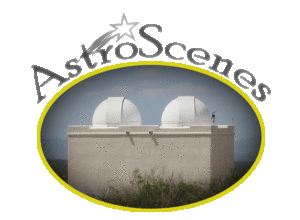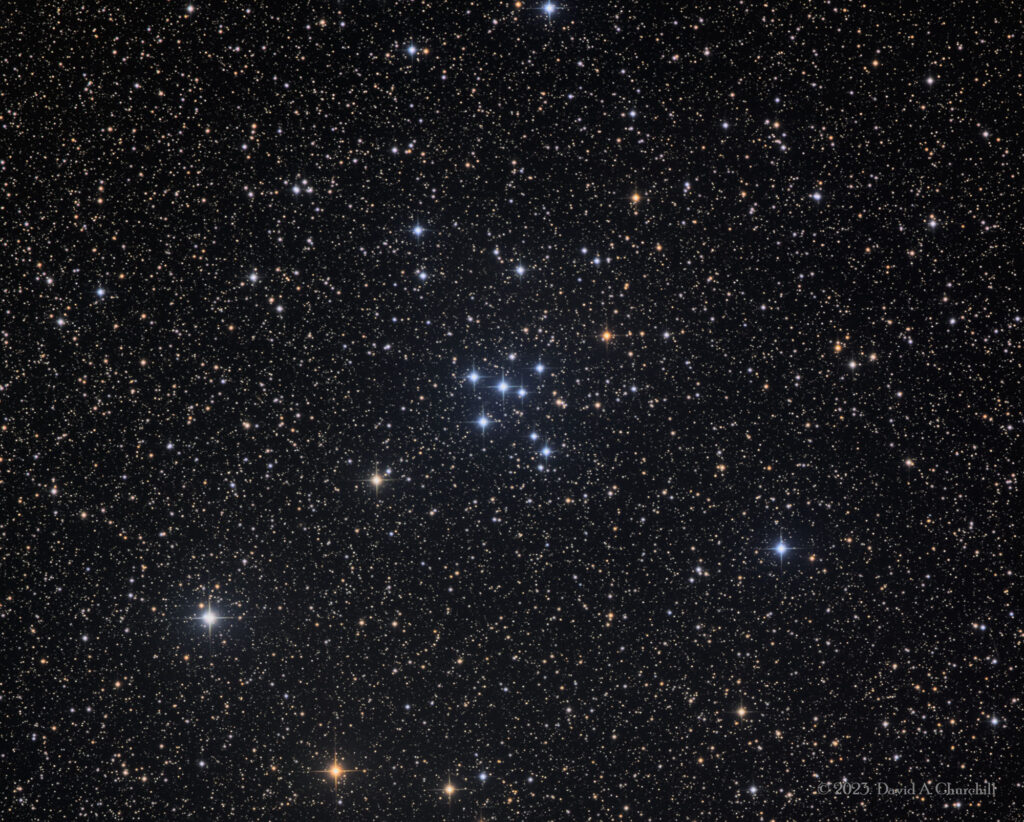NGC 3228
Open Cluster, Vela
- Description
- Technical
- Links
NGC 3228 is an open cluster in Vela. It was discovered by Nicolas Louis de Lacaille in 1751–1752, while he was in South Africa and catalogued it as Lac II.7. It is small but bright and can be observed easily with binoculars in sufficiently dark skies.
It is a cluster of Trumpler type I1p or II3p, with few members with large brightness range and a slight concentration toward its center. Klarchenko et al. mention 53 possible members within the angular diameter of the cluster. The tidal radius of the cluster is 1.4 – 5.5 parsecs (4.5 – 18 light years) and represents the average outer limit of NGC 3228, beyond which a star is unlikely to remain gravitationally bound to the cluster core. The brightest member is of mag. 7.9 and the hottest star is of spectral type B9. One member, HD 89856 (mag. 9.04, spectral type B9), is a variable star with period 4.556 days.
It is a cluster of Trumpler type I1p or II3p, with few members with large brightness range and a slight concentration toward its center. Klarchenko et al. mention 53 possible members within the angular diameter of the cluster. The tidal radius of the cluster is 1.4 – 5.5 parsecs (4.5 – 18 light years) and represents the average outer limit of NGC 3228, beyond which a star is unlikely to remain gravitationally bound to the cluster core. The brightest member is of mag. 7.9 and the hottest star is of spectral type B9. One member, HD 89856 (mag. 9.04, spectral type B9), is a variable star with period 4.556 days.
Telescope: Planewave CDK17 (FR) f4.5
Mount: Astro Physics 1600GTO
Camera: QHY16200A/ Integral FW
Guider: Agena Starguide II / ZWO ASI178MM
Filters: Astronomik 36mm LRGB
L: 43×5 mins = 215 mins, R: 24×5 mins = 120 mins, G: 24×5 mins = 120 mins, B: 24×5 mins = 120 mins
Total Imaging Time: 9h 35m
Data Imaged remotely over 3 nights during March 2023.
Imaged from Observatorio El Sauce, Chile, in partnership with Fred Espenak.
Data acquisition & Processing by David Churchill.
None

